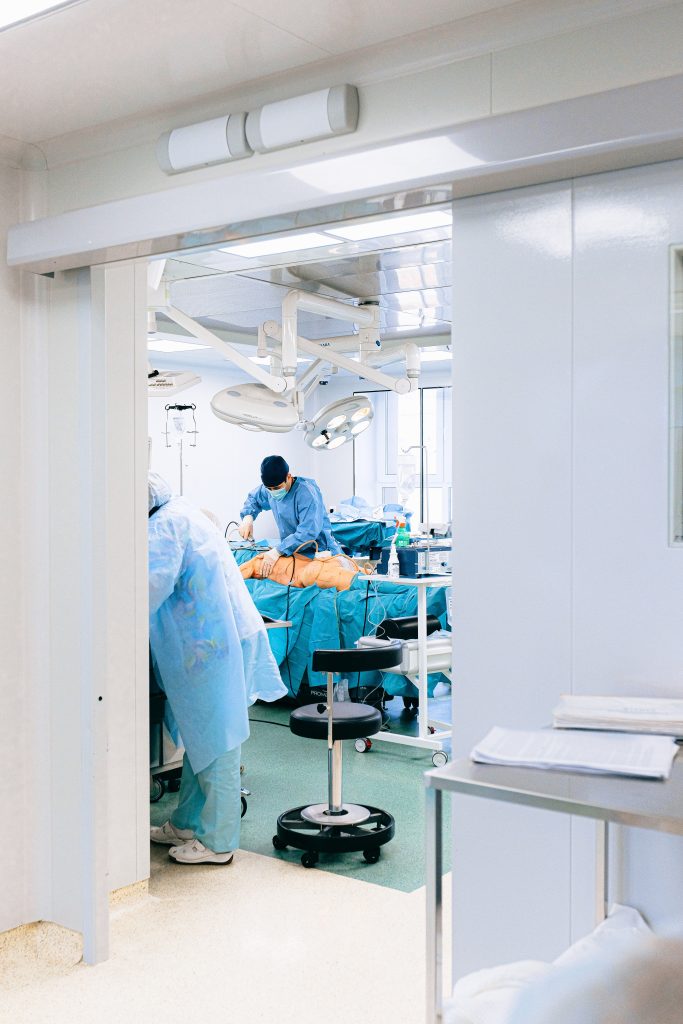Weight loss surgery is an increasingly popular way to achieve significant and lasting weight loss. If you are considering weight loss surgery, it is important to have a clear understanding of the potential benefits, risks, and lifestyle changes that come with it. In this blog post, we will cover the top 10 things you should know about weight loss surgery, so that you can make an informed decision.

You’re not alone
If you are dealing with overweight, then you know you’re not alone. According to the World Health Organization, there are over 1.9 billion adults worldwide who are overweight or obese. performing this surgery can be a great tool for those who have tried traditional methods such as diet and exercise and still struggle to lose weight. It is important to remember that while the surgery is a powerful tool, it is not a cure-all. As with any medical procedure, it is important to understand the risks, potential complications and limitations of the surgery before deciding if it is right for you.
The decision is personal
When it comes to weight loss surgery, the decision to go through with a procedure is one that should not be taken lightly. It is important to talk to your doctor and weigh the potential benefits and risks before making a final decision. Every person’s situation is unique and there is no one-size-fits-all solution.
this type of surgery can be a highly effective way for some people to achieve lasting weight loss, but it may not be the best option for everyone. Your doctor will help you decide if you are an ideal candidate for weight loss surgery and if it’s the right choice for you. Be sure to ask questions and express any concerns you may have before making your decision.
Weight loss surgery is a tool, not a cure
It is important to remember that weight loss surgery is a tool and not a cure. It is only meant to help you achieve your weight loss goals, and it is not a magic bullet. You will still need to make changes to your lifestyle, such as eating a balanced diet and exercising regularly. Weight loss surgery can be an effective tool in helping you reach a healthy weight, but it will take commitment and hard work on your part. Even after successful surgery, you may still need to make lifestyle changes in order to maintain your results. It is important to understand that surgery is not a cure for obesity and it is important to have realistic expectations about the results you can expect.
There are risks and potential complications
the procedure is life changing, but it is still a major surgery. As with any type of surgery, there are risks and potential complications. Weight loss surgery is no different.
The most common risks associated with this surgery include infection, blood clots, and reactions to anesthesia. In rare cases, additional surgeries may be needed if there are any complications.
the surgery for weight loss also carries some long-term risks such as nutritional deficiencies, hernias, and gallstones. It is important to understand these risks so you can make an informed decision. Talk to your doctor about any concerns you may have.
Know that even after successful weight loss surgery, the changes you make to your lifestyle will have the biggest impact on your health and wellbeing. Eating healthy foods and exercising regularly are essential for long-term success.
It is not a quick fix
The surgery is a life-changing procedure that leads to long-term success, but it’s important to understand that it isn’t a quick fix. The surgery does not produce immediate weight loss or guarantee that you’ll keep the weight off forever. The amount of weight loss depends on a number of factors, such as how well you follow the diet and exercise recommendations after the surgery. This type of surgery also requires dedication and lifestyle changes in order to be successful. It takes time to adjust to the changes and establish healthier habits.
It’s important to have realistic expectations of the weight loss and to understand that there may be periods of weight regain, especially if you don’t stay on track with your diet and exercise plan. Achieving a healthy weight is a process, not an event, and it can take some time before you start seeing the results of your hard work. With patience, dedication, and support from a team of professionals, you can reach your weight loss goals.
You will have to change your eating habits
When it comes to weight loss surgery, making changes to your eating habits is essential. As you prepare for the surgery, you’ll need to adjust your diet to help your body get used to eating less food. After the surgery, you will still have to make changes to your diet in order to maximize the benefits of undergoing this surgery
Your healthcare provider will likely give you a list of dietary recommendations to follow before and after the surgery. This may include reducing your portions, avoiding sugary drinks, snacking on healthy snacks, and not overeating. Additionally, it’s important to stay hydrated by drinking plenty of water throughout the day and limiting your intake of caffeine and alcohol.
While it can be hard to make big changes to your diet, keep in mind that it is necessary in order to successfully lose weight through surgery. With the right diet and regular exercise, you can maximize the results of the surgery and improve your overall health.
You will have to exercise
Exercise is an important part of any weight loss program, and it’s no different after your surgery. Exercise can help you lose more weight, maintain the weight you have lost, and improve your overall health. For best results, aim for 30 minutes of exercise five days a week. This should include both aerobic exercise, such as walking, jogging, or cycling, as well as strength training. Working with a personal trainer or physical therapist can help you design an individualized exercise plan. It’s important to start slowly and gradually increase the intensity over time. Talk to your doctor before beginning any new exercise program after surgery.
You may need vitamins and minerals supplements
Going for surgery to reduce weight loosens your ability to absorb certain vitamins and minerals. It is recommended that you take vitamin and mineral supplements as part of your weight loss plan after surgery. Vitamin and mineral supplements are particularly important for people who have had this surgery, as the body needs these nutrients to function properly. Supplements such as calcium, iron, B12, and multivitamins can help maintain optimal health and reduce the risk of developing deficiencies associated with surgery for weight loss. Additionally, a doctor may prescribe other vitamin and mineral supplements to ensure that all your nutrient needs are being met. Talk to your healthcare provider about what supplements you should be taking after weight loss surgery.
Follow-up appointments are important
For anyone considering reduce the extra weight with surgery, follow-up appointments with a physician or healthcare provider are essential. These appointments allow your doctor to monitor your health and evaluate the effectiveness of the weight loss surgery. During these appointments, your doctor will take your weight and measure your body fat percentage, as well as check for any possible complications. The doctor may also do tests such as blood work or an electrocardiogram (EKG). It is also important to discuss any potential dietary changes with the doctor, such as additional vitamin and mineral supplements that may be needed.
It is important to keep all of your follow-up appointments in order to ensure a successful weight loss surgery outcome. These appointments are also an important part of creating an overall healthy lifestyle and preventing possible complications down the road.
support groups can be helpful
For many people considering this surgery, joining a support group can be a great way to get the answers they need. Support groups are a place to find others who have gone through or are considering undergoing the same procedure as you. You can ask questions, get advice, and get connected to resources such as nutritionists and surgeons.
Support groups can also be beneficial in helping with mental health issues that may arise due to the changes in lifestyle following weight loss surgery. They can provide a safe space to discuss the emotional challenges that may accompany the process. Additionally, being able to talk to people who have similar experiences can help you feel less alone and create positive relationships with others who understand what you are going through.
Finding a support group that is focused on weight loss surgery can be done by looking online, or contacting local healthcare providers for more information. Joining a support group is a valuable resource for those considering or already undergoing weight loss surgery.
Conclusions
Weight loss surgery is a life-changing experience that can help you achieve your weight loss goals. It is not the ultimate solution, however, it includes commitment to diet and exercise as well as close follow-up with your doctor to ensure the best outcome. Weight loss surgery can be a great way to jumpstart a healthier lifestyle and a healthier you.








